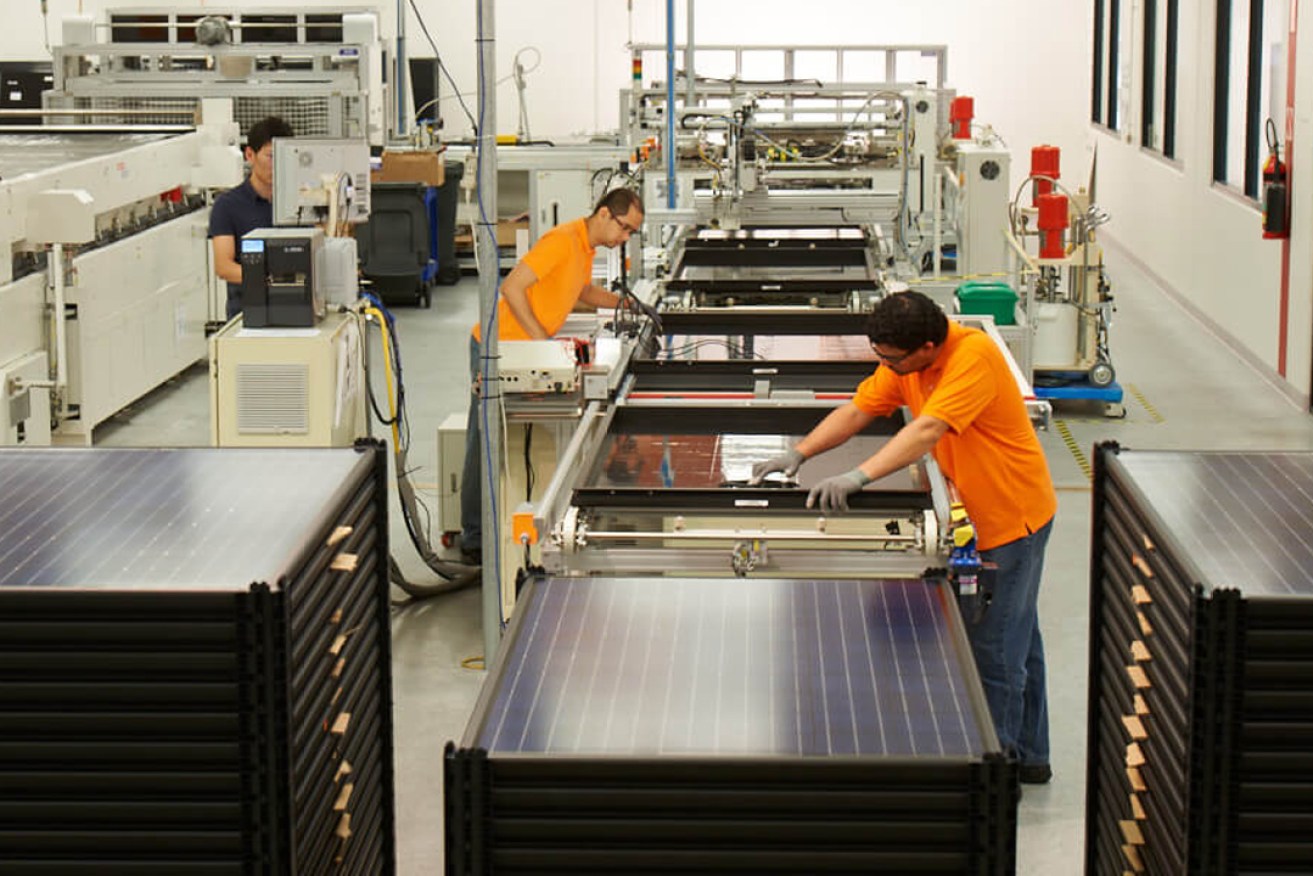AI could revolutionise SA’s manufacturing sector
Industry leaders say artificial intelligence could make South Australian companies more competitive globally.


Mawson Lakes panel manufacturer Tindo Solar uses computer vision AI to rapidly identify dead solar cells before constructing a panel.
South Australian manufacturers already using AI and machine learning technology say it has improved efficiencies, production and quality.
However, they’re calling for more State Government funding and education, particularly around the benefits of the emerging technology, to increase the uptake of AI by local SME manufacturers.
Tillit chief executive James Balzary said bipartisan government support and a “heavy marketing focus” was needed if SA was to become a long-term player in AI and compete on the world stage.
Tillit, based at Tonsley, delivers Software as a Service (SaaS) and connected technologies to companies across the manufacturing industry.
Balzary says SA batted “well above our weight” on a global stage regarding machine learning, with companies already using it for predictive maintenance, image recognition, quality detection and statistical forecasting.
However, it’s still quite a niche area, with less than 25 per cent of SME manufacturers using vision systems and machine learning, he said.
“Big companies and AI innovators are not going to set up their base in SA unless they strongly feel that there’s bipartisan support to support this over a ten-year timeframe because that’s going to take that long,” Balzary said.
“The grant projects traditionally that SA has run and the Federal Government has run in manufacturing and industrial technology have been more focused on perhaps ribbon cutting and investing in capital equipment.
“We’re hugely passionate that the digital aspect of the opportunity is way bigger, and also it has a multiplier effect. So you know, supporting AI and digitalisation innovation is you could achieve far more bang-for-buck than supporting a company to buy a new piece of stainless steel.”
He said that some of the reasons for this low uptake include the high costs of integrating AI into manufacturing processes, a “trust issue” with the technology and the availability of reliable data.
If SA was to become a global leader and compete on the world stage, the State Government needed to educate manufacturers who were still unsure about the technology, according to Balzary.
“You go into companies like La Casa Del Formaggio or you go to Golden North Ice Cream or you go to all of these iconic SA brands and you ask them if they are ready for AI and the answer will invariably be ‘no’,” Balzary said.
“Most of that problem is an educational problem and the fact that they think it’s expensive, big, scary and they have to do all this foundational stuff when all they need is people and data.”
Tindo Solar chief executive Robert Sporne says computer vision has been “invaluable” since its implementation in quality control.
The Mawson Lakes manufacturer produces about 280,000 solar panels annually, with that capacity growing by about 60,000 every year.
Computer vision can rapidly identify dead solar cells before constructing a panel, saving time and money.
“It’s a massive saving in terms of just rework and not having to go over things quite as often,” Sporne says.
“You’ll get the occasional issue but nowhere near as much as potentially we used to experience, especially given the extra complexity in the module.”
Sporne says the State Government needs to provide better messaging about AI’s benefits and more funding.
He says they also need funding to allow SME manufacturers, often reluctant to invest money into AI because it can be perceived as too risky, to explore the technology.
“That would give the company the chance to experience it without as much risk because that’s probably an area where people are a bit apprehensive,” Sporne says.
“They need that first taste, to dip their toes in the water, and potentially there’s a place for government to assist that.”
“South Australia has always been a manufacturing hub. We’ve got the people and the skills, so that next evolution is to apply that into ensuring we can we can meet the needs of the future.”
AML3D founder and managing director Andy Sales said AI gave SA a golden opportunity to modernise its manufacturing sector.
Based out of Edinburgh, the three-dimensional metal printing manufacturer combines welding, robotics and metallurgy to produce structures for various industries, including the defence and mining sectors.
While Sales said the company hadn’t explored AI and machine learning with any vigour, a “small amount” is applied to its robotic welding process.
He said increased State Government assistance in grants and financial support would help companies adopt future technologies like AI.
“We’ve got a little bit of machine learning and where it works really well is when it’s doing repeating printing of objects that are the same day-in, day-out,” Sales said.
“What governments probably should consider is choosing technologies, and AI would probably be one of them, to give the highest focus and the highest percentage of funding.
“Let’s say you are a company that has a fantastic idea and you can prove that it’s going to make a difference over the next 50 years or whatever, but it needs AI to bring it to commercialisation; something like that should get fully funded.”




